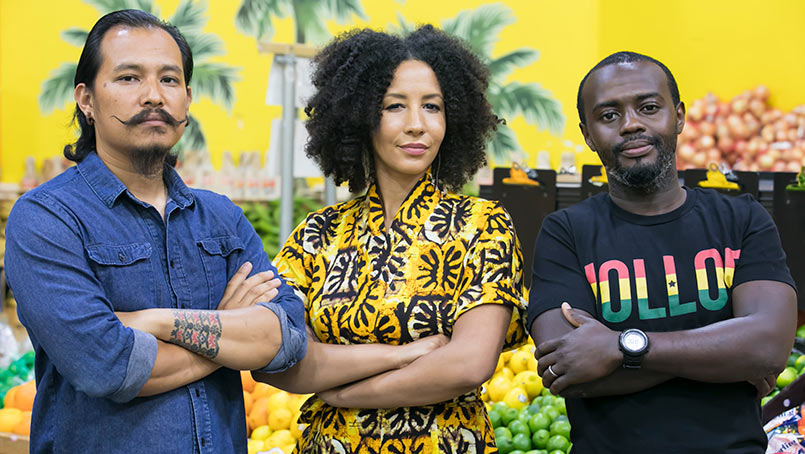
27 Nov 2019 People in Preservation: Biplaw Rai and Nyacko Pearl Perry in Upham’s Corner Comfort Station
Now nearing completion of a $1.4 million restoration and rehabilitation of the 1912 Upham’s Corner Comfort Station in Dorchester, HBI is pleased to announce a partnership with Biplaw Rai and Nyacko Perry, who plan to open Comfort Kitchen, a daytime café and pop-up dinner experience featuring local chefs and food entrepreneurs in 2020. Biplaw Rai and Nyacko Perry of Dorchester are joining with HBI to open the doors of the Columbia Road property near Upham’s Corner in Spring 2020. Rai is a former managing partner of the Shanti Restaurant Group and is co-founder of Dudley Café in Roxbury. Perry is an organization development consultant and founder of Yin Consulting. With partner, Kwasi Kwaa, a local chef behind the Ghanian street food pop-up Chop Bar, the team will hold regular dinner service as well supporting development of other local food entrepreneurs. We spoke with Nyacko and Biplaw to learn more about their vision for the space and the business.
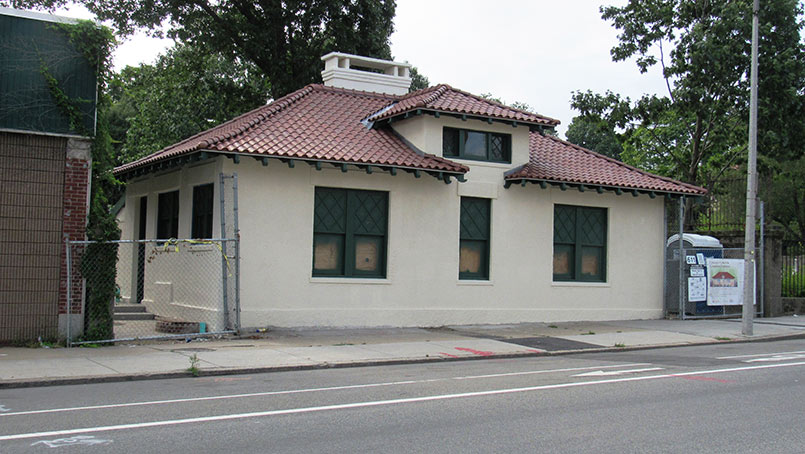
What do you do now? How did you get into that business?
Nyacko: I got my MA in Organization Development from American University in Washington DC. After school, I worked with organizations to incite change initiatives and improve employee experience. However, every time I went to an organization, I would see that there were underlying issues that were effecting the environment: communications, equity inclusion, diversity, etc. and it was clearly effecting people’s lives at work. That’s when I switched to Organization Healing Consulting. In that position, I have learned how to create healthier systems for the people that work make more productive origination.
Before I got into this field, I was interested in trauma work, and I was thinking of being a psychologist. Most of my professional experience was youth developed and youth counseling and organizations that supported young people, some were in difficult situations, and young women empowerment. As I moved from direct service, I was working with businesses to address their issues as a whole. On this path, I founded Yin Consulting, where I work to bring clarity and awareness that will allow companies to make the changes necessary to facilitate healthier systems and organizations.
Biplaw: I came to US when I was 18 and I went to college in Missouri. My family in Nepal had always been in the tourism industry, and we had always hosted students on their gap years and on study abroad. My undergrad degree was in political science, and I graduated in 2006 just before an economic crisis. Then I was working for an IT company and enrolled in business school, but when I graduated in 2009, there weren’t a lot of jobs opportunities open to a foreigner. After I left school, I went to work for Darwin’s Café in Cambridge, and I was managed their café for a long time. I have worked in the food industry in every capacity: restaurants, delivery, back of the house, front of the house and management.
My background is an MBA (at Hamlon Minnesota) in business, but for various reasons I ended up in the food services. From my families time hosting, we had gotten to know lots of families who had come and stay with us and one family we knew lived in Cambridge. So that’s how I ended up in Boston.
In 2015, I co-founded Dudley Cafe with my partner Solmon Chowdhury. As of now, I am devoting myself to Comfort Kitchen, which has been a dream of mine for the last 15 years of my career, which has been centered around food justice. Though I am ending my involvement at Dudley Café, it has been a really great learning experience and it has been great to see that business grow.
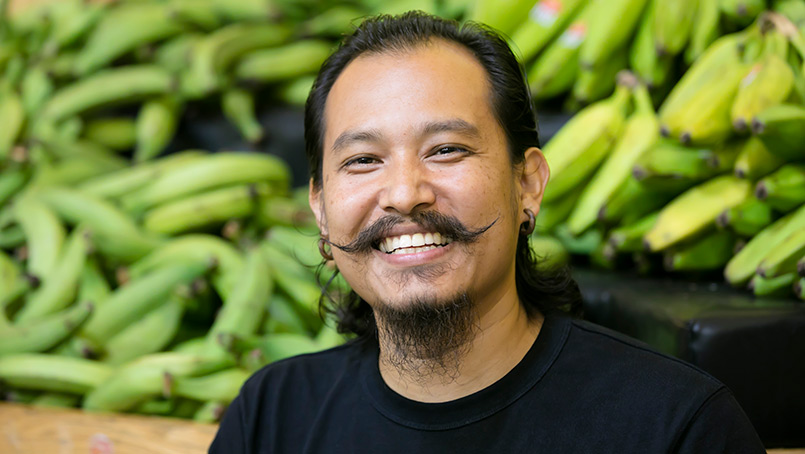
Are there businesses that inspired your ideas for Comfort Kitchen?
Biplaw: This has been a journey for us. The project we are planning for now is a result of our experiences and our ideas. At its core, the model we are putting together will cater to underserved communities and people who are not heard. Those stories attract us, and especially in this political climate. Those stories are central for how was change the dialogue and plan for our business.
Nyacko: I think Dudley Café is an inspiration for the way that we want to plan for Comfort Kitchen. At Dudley, there is a relationship with the community that is so powerful, and we see how important it is to strive to have a business that has a middle ground between keeping a thriving business that also treats it employees well and its customers well.
Restaurants in Los Angeles like La Cucina have exemplified alternate models that uplift community members. They have a pop space for women-run kitchens and entrepreneur chefs. To adapt this model locally, we draw inspiration from businesses like Mei Mei, Tres Gatos, Juliette in Union Square in Somerville. Their models are different from usual practices; their payment methods and employee retention are admirable and something that we want for Comfort Kitchen.
Our business model will be more equitable. We’ve seen that the tip system only benefits the people who are working in the front of the house, while workers in the back, who are often immigrants, are not receiving those extras and are missing out. Transforming the way that we operate will ensure that there is equity for every person that is involved in the business.
Biplaw: There’s Tunde Way, who hosted a pop up called “Blackness in America” at Dudley Café in 2016. As an immigrant, who started his careers working in food industry, Tunde was was transformative in the way he approached his work and he really helped to bring those ideas out to light. His work proves that there is a way of communicating with customers and employee differently. We are hoping to bring him and his methodology to Comfort Kitchen.
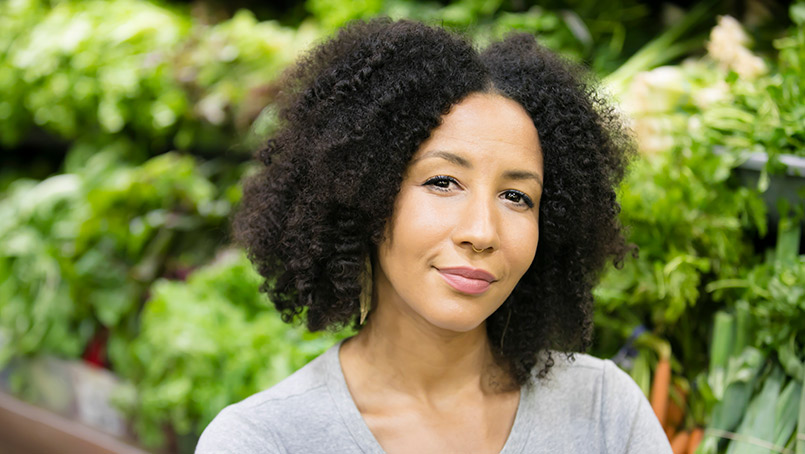
Looking forward two years, what is your dream/vision for the space? What are you looking forward to the most after moving into the space?
Biplaw: We hope that we are in a full restaurant and lots of events. Ideally, you would walk in and see other regulars when you pick up coffee in the morning or come for our brunch programs on the weekends.
Nyacko: I hope that people feel comfort in the space and that people from all walks of life walk in the door and see that this is space for them. Our vision for the space revolves around three Cs: collaboration, community building, and cross-cultural understanding. These components are meant to create comfort for people. Once we’ve settled into our rhythm, I hope that we will see the three CS come alive, and foster a place where people can come and talk about those their own cultures and become exposed to others.
What has been the biggest challenge of the project so far?
Nyacko: From the start, we were expecting challenges. This is a unique project, because it is multi-layered there are difference parties involved. It makes it more interesting that our business plan is not the standard business plan that most restaurants use. I think that is the point behind our mission: “It’s a lot, but yeah we’ve been training our whole careers for this. It is a merger and more intentional version of what we have been wanting to do all along.” We are a multi-talented team and we can achieve our goals even if it is a complex undertaking.
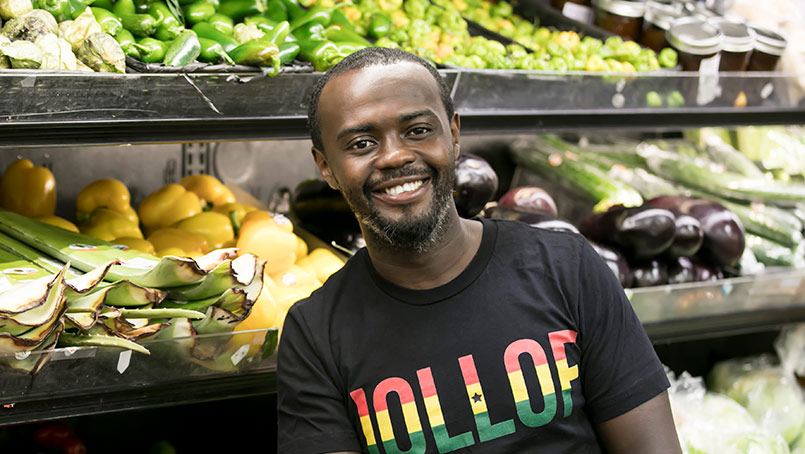
What has been the best thing about the project so far?
Nyacko: I feel like we have wins on a daily basis. We have a positive relationship with Historic Boston, and we’d be in a different situation if that wasn’t the case. I know that I can call and talk to Lisa with questions or details really quickly. For details like the transition of the design of the space from one design ream to another, everyone is onboard and is does their best to make it a positive change over.
When we added Kwasi to the project, it all fell into place. Kwasi has known Biplaw for 10 year and it was just perfect that he was in the phase in his business where he was ready to open his own restaurant. To add to that, Kwasi’s wife organized our branding and helped with setting up that part of our vision. Everyone who has been involved has helped us put their best foot forward to make this happen.
Biplaw: There is synergy in the project, which is really the culmination of everything we have been doing for the last ten years. We’ve always worked well together and the dots are lining up to make this possible. There are a lot of things that go haywire in the planning phase, but at the end of the day the relationships that we have built have become bigger and more important to us. In the last three months, we’ve come a long way working with the design team, Historic Boston, and the City of Boston. There are so many things needed to open a business and we were nervous how that might be tied up bureaucracy. It is a lot better than, we expected and the Economic Development team has been really accommodating. Though plans are never executed perfectly, working with the City has showed us that our vision can work.
Nyacko: To me, when we open up it will speak volumes to how the city, non-profits, and for-profit businesses can all work together to achieve a common goal. It’s possible. When we tell people what we are doing, there are lot of people who think a relationship like this can’t work. Our final project well will show it’s possible. We are thankful for the opportunity to do this. Despite all the unknowns and obstacles, we count our lucky stars, because this had been our dream for many years. Now we have the chance to actually do it.



